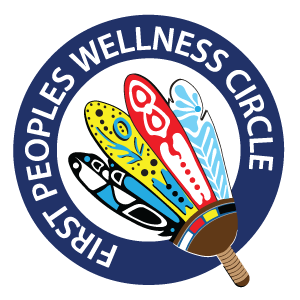Mental Wellness Teams
Mental Wellness Teams (MWT) are community–based, multidisciplinary teams which provide culturally appropriate services that can include but are not limited to capacity-building, trauma-informed care, land-based care, early intervention and screening, crisis response, aftercare, care coordination and support an enhanced continuum of care by building partnerships across federal, provincial and territorial jurisdictions. MWTs blend traditional, cultural and mainstream approaches to provide mental wellness services to First Nations communities.
The MWTs main objective is to support existing efforts to address mental wellness by increasing access to services and programs that are comprehensive, client-centred, culturally safe, and community-based and to fill gaps in the continuum of care.
The main goal of MWTs is to enhance collaboration among clinical and community experts in order to increase and improve culturally safe mental wellness services. The MWTs promote community engagement, and community development and support self-determination with respect to mental wellness with the aim of improving health outcomes and are intended to be owned, defined and guided by the First Nation communities they serve.
There are currently 58 MWTs throughout the country providing services to over 300 First Nation communities.
HISTORY OF THE MENTAL WELLNESS TEAMS
In 2007, as part of Health Canada’s National Anti-Drug Strategy, the Government of Canada, committed to enhancing the quality, effectiveness and accessibility of addictions services in First Nations and Inuit communities. This included an investment in the Mental Wellness Teams pilot project in Inuit and First Nation communities.
The MWT pilot project started with eight (8) MWT:
- Tui’kn Partnership Mental Wellness Team, Nova Scotia (no longer active)
- Maliseet Mental Wellness Team, New Brunswick
- Raising the Spirit Mental Wellness Team, Northeastern Ontario (no longer active)
- Mental Wellness Team Pilot Project, Lac-Simon/Kitcisakik, Quebec
- Mapping the Way Mental Wellness Team, Nunatsiavut (status unknown)
- Anishinabe Mekina Mino-Ayawin—Road to Good Health, Manitoba
- White Raven Healing Lodge, Saskatchewan
- Quu-asa Mental Wellness Team, Vancouver Island, British Columbia (no longer active)
Each of the teams were developed using their own unique, community-based approaches typically comprising multi-disciplinary teams providing a range of culturally safe mental health and addictions services and support to their communities. A main emphasis in each team was to incorporate traditional, cultural, and mainstream clinical approaches to mental wellness services, enhancing the continuum of care from prevention to after-care.
In July 2016, the “Evaluation of the First Nations & Inuit Mental Wellness Programs 2010-2011 to 2014-2015” was prepared by the Office of Audit and Evaluation, Health Canada and the Public Health Agency of Canada. It concluded that there was a continued need for mental wellness programming in First Nation and Inuit communities. Around the same time as the report was published, Prime Minister Trudeau announced additional mental wellness funding which would support 4 Crisis Response Teams and up to 32 mental wellness teams bringing the new total of MWT to 43 and 4 CRT.
In 2018, FPWC was able to identify 63 First Nation MW/CRT throughout the country. As of January 2022, the number of teams has since decreased to 58, due to territorial structure changes and some teams being dismantled for various reasons.
